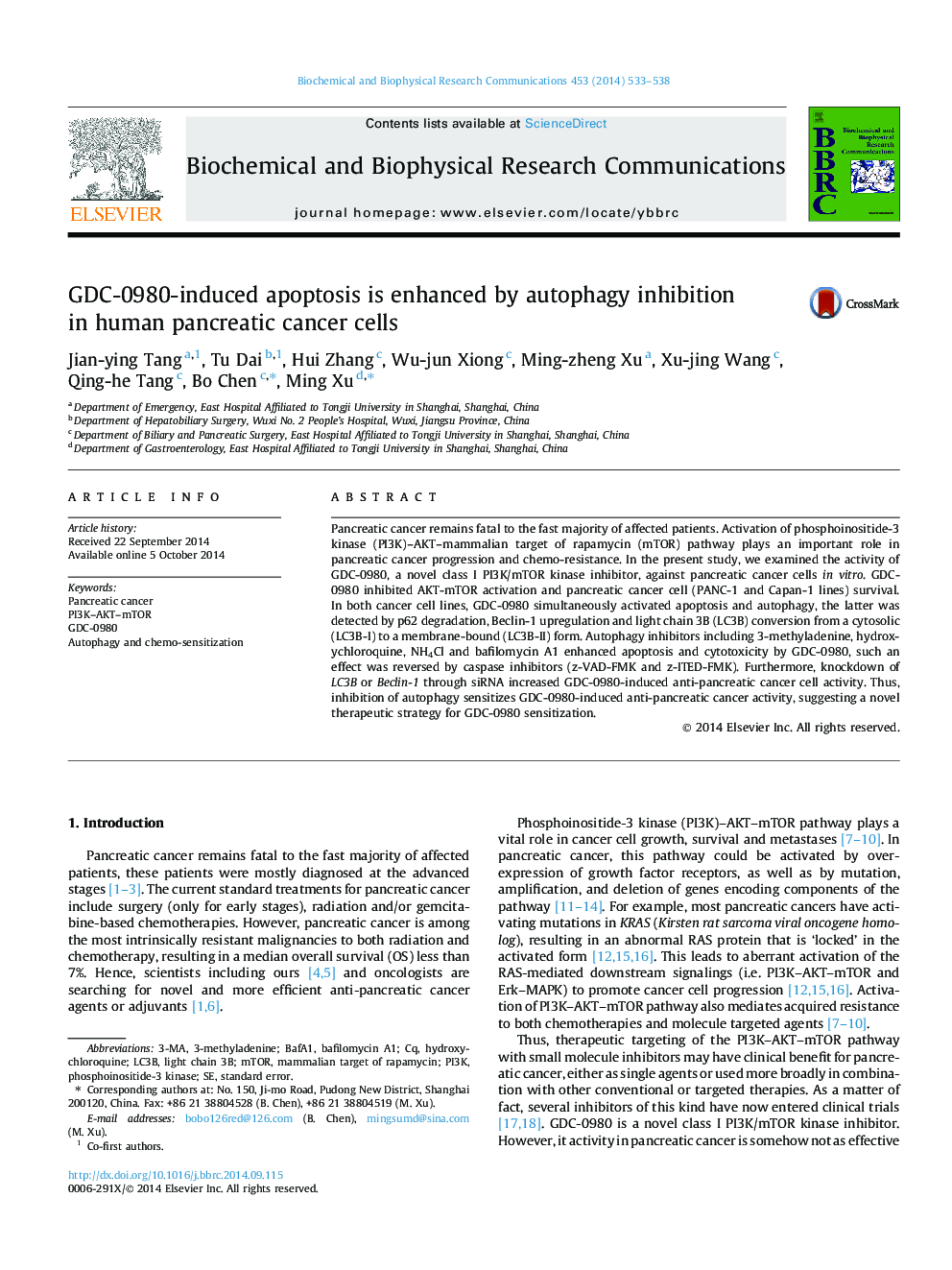| Article ID | Journal | Published Year | Pages | File Type |
|---|---|---|---|---|
| 1928442 | Biochemical and Biophysical Research Communications | 2014 | 6 Pages |
•GDC-0980 inhibits AKT-S6K1 phosphorylation and pancreatic cancer cell survival.•GDC-0980 activates autophagy and apoptosis simultaneously in pancreatic cancer cells.•Autophagy inhibitors enhance GDC-0980-induced pancreatic cancer cell apoptosis.•Beclin-1 or LC3B siRNA knockdown sensitizes pancreatic cells to GDC-0980.•Autophagy inhibition represents a novel therapeutic strategy to sensitize GDC-0980.
Pancreatic cancer remains fatal to the fast majority of affected patients. Activation of phosphoinositide-3 kinase (PI3K)–AKT–mammalian target of rapamycin (mTOR) pathway plays an important role in pancreatic cancer progression and chemo-resistance. In the present study, we examined the activity of GDC-0980, a novel class I PI3K/mTOR kinase inhibitor, against pancreatic cancer cells in vitro. GDC-0980 inhibited AKT-mTOR activation and pancreatic cancer cell (PANC-1 and Capan-1 lines) survival. In both cancer cell lines, GDC-0980 simultaneously activated apoptosis and autophagy, the latter was detected by p62 degradation, Beclin-1 upregulation and light chain 3B (LC3B) conversion from a cytosolic (LC3B-I) to a membrane-bound (LC3B-II) form. Autophagy inhibitors including 3-methyladenine, hydroxychloroquine, NH4Cl and bafilomycin A1 enhanced apoptosis and cytotoxicity by GDC-0980, such an effect was reversed by caspase inhibitors (z-VAD-FMK and z-ITED-FMK). Furthermore, knockdown of LC3B or Beclin-1 through siRNA increased GDC-0980-induced anti-pancreatic cancer cell activity. Thus, inhibition of autophagy sensitizes GDC-0980-induced anti-pancreatic cancer activity, suggesting a novel therapeutic strategy for GDC-0980 sensitization.
